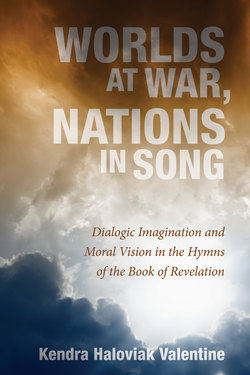Описание книги
Rather than representing the book of Revelation as a single «apocalyptic» genre, Kendra Haloviak Valentine demonstrates that the work in fact reflects several genres–apocalyptic, prophetic and liturgical–within the overall framework of an epistle. This study focuses on the sixteen hymns, a largely neglected part of the literary construction of the work. Responding to the insight of Mikhail Bakhtin that literary genres carry ways of thinking about the world, this important study calls attention to the multiple voices within the text that need to be heard–voices that soften the book's transcendent, future focus so that it is not allowed complete dominance.
Hymns, as the sites of colliding and collaborating genres, engage the reader. Worlds at War, Nations in Song explores the role of these liturgical elements within the moral enterprise to suggest that the book of Revelation provides readers with a moral vision linking the future with the present. Readers are called to respond in worship and witness. By calling attention to the multiple voices within Revelation, Haloviak Valentine demonstrates the invalidity of seeking «one» correct interpretation. Recognizing this dialogic approach may help prevent the misinterpretations that led to such tragedies as Waco and Jonestown.
Hymns, as the sites of colliding and collaborating genres, engage the reader. Worlds at War, Nations in Song explores the role of these liturgical elements within the moral enterprise to suggest that the book of Revelation provides readers with a moral vision linking the future with the present. Readers are called to respond in worship and witness. By calling attention to the multiple voices within Revelation, Haloviak Valentine demonstrates the invalidity of seeking «one» correct interpretation. Recognizing this dialogic approach may help prevent the misinterpretations that led to such tragedies as Waco and Jonestown.
